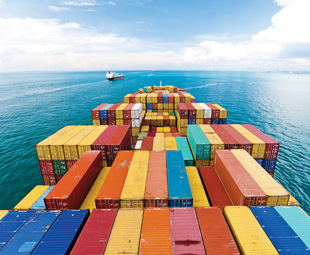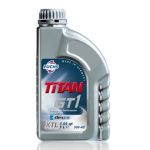Maritime casualties and the risks of uninsured cargo

If a vessel experiences a maritime casualty, cargo owners may have to contribute to the expenses incurred by ship owners, in addition to any losses suffered as a result of damage to cargo
If a ship owner incurs extraordinary expenses in efforts to preserve maritime property (such as cargo), or to continue the voyage and deliver cargo to
its intended destination, some of these costs may be recoverable from the other interests involved in the voyage.
If a ship experiences a fire, a grounding, or suffers a mechanical breakdown and the ship owner incurs costs to complete the voyage, then the principle of general average provides that cargo owners, the ship’s hull and machinery insurers and any charterers may have to contribute to such expenses on a proportional basis.
What are the merits of insured cargo? Most marine cargo insurance policies cover loss or damage caused to cargo by a fire or vessel grounding. The cargo owner must show that the loss or damage is sufficiently related to the peril insured.
In addition, most marine insurance policies also cover the cargo owner’s liability to the ship owner for general average.
Most marine insurance policies exclude a cargo insurer’s liability for consequential losses (such as currency fluctuations, commercial penalties and loss in value) and losses caused by delays in the cargo reaching its destination.
These losses can be significant as a maritime casualty can delay the vessel reaching its destination for several months. Such losses are also generally not recoverable from the ship owner or other parties.
If cargo is uninsured, then it is the cargo owner who is exposed to the risk of loss.
It is also important for owners of insured cargo to put up a general average bond.
It can take several years for a general average adjustment to be issued, which will set out the allowable expenses and each party’s proportional contribution. In practice, ship owners will not release any cargo until the cargo owner’s general average contribution is either guaranteed or secured by way of a cash deposit.
The cargo owner signs a general average bond stating that, in exchange for release of the cargo, they undertake to pay the general average contribution. Cargo insurers then sign a guarantee in terms of which they undertake to pay the general average contribution.
In practice, it is unheard of for cargo owners who have proper marine insurance to have to pay general average themselves, because their cargo insurers guarantee that payment.
The need for marine insurance is therefore clear. Cargo owners and insurers need to be aware that maritime casualties expose them to the risk of large general average contributions.
If they don’t properly insure their cargo, they risk damage to their cargo, which they cannot recover from the ship owner, and large claims for general average expenses.
Carol Holness is a senior associate in the Norton Rose Fulbright admiralty and transport team based in Durban. She focuses on shipping, admiralty and international trade issues as well as marine, transport and logistics insurance. Holness has represented local and international clients in many aspects of transport law, including questions of marine insurance cover and subrogated insurance recovery actions.
Published by
Focus on Transport
focusmagsa




